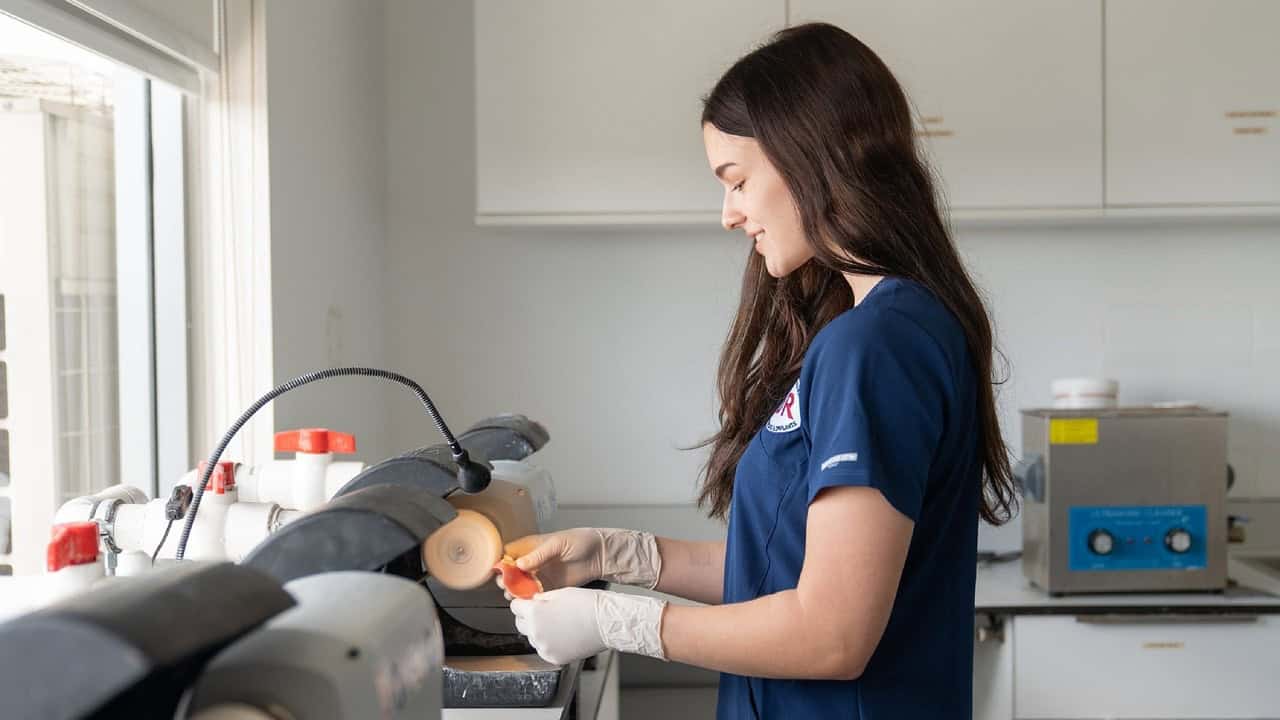Study 101: How To Understand And Plan For The PLAB Test

The Professional and Linguistic Assessments Board (PLAB) test is one of the most important steps for international medical graduates who want to practice medicine in the UK. It’s designed to ensure that your medical knowledge and clinical skills meet the standards required by the General Medical Council (GMC). Whether you’re still studying medicine, partway through your degree, or a newly graduated doctor, understanding the PLAB process is essential if you’re aiming for a medical career in the UK. The following article will explain how the test is built, and provide a helpful list to help you ace your exam studies.
Table of Contents
- What is the PLAB Test?
- What’s the Difference Between the PLAB Test and UKMLA?
- How Do You Know If You Need to Sit the PLAB Test?
- Do You Need to Sit the PLAB Test if You’re an International Student Studying Outside the UK?
- Are You Licensed to Practice Medicine in the UK if You Pass the PLAB Test?
- What is the Best Process for Studying for the PLAB Test?
- What are the Do’s and Don’t’s for the PLAB Test
- Essential Study Tips for the PLAB Test
What is the PLAB Test?
The PLAB Test stands for the Professional and Linguistic Assessments Board Test. It’s required for international medical graduates to prove that their skills and knowledge are on par with those expected of doctors in the UK.
The PLAB Test consists of two parts:
- Part 1: A written exam with 180 multiple-choice questions, lasting three hours, designed to test your theoretical knowledge.
- Part 2: A practical Objective Structured Clinical Examination (OSCE) consisting of 16 scenarios that assess your clinical and communication skills.
For the PLAB Test, Part 1 and Part 2 can be taken relatively closely together, but there are some important guidelines to follow:
- Minimum Gap: There is no strict minimum time gap between Part 1 and Part 2, but you must pass Part 1 before booking Part 2. It’s common for candidates to schedule Part 2 shortly after receiving their Part 1 results, depending on test availability.
- Maximum Gap: You must sit Part 2 within two years of passing Part 1. If more than two years elapse after passing Part 1, you’ll need to retake it before sitting Part 2.
- Contingencies: Part 2 is contingent on passing Part 1 so it’s important to approach the test sequentially. Equally, Part 2 is only offered and must be sat in the UK, so you’ll need to factor travel into your timeline once you pass Part 1.
Unquestionably, if you take anything away from this article it’s that – along with studying – you need to plan thoroughly to avoid scheduling conflicts or missing deadlines.
Why do you Need to Know What the PLAB Test is?
The PLAB test is for international medical graduates who wish to practice medicine in the UK. It’s non-negotiable for doctors aiming to register with the GMC, the regulatory body that oversees medical practice. PLAB ensures that overseas doctors have the same level of knowledge and clinical skills as their UK counterparts who’ve just qualified.
If you’ve graduated from a medical school outside of the UK, European Economic Area (EEA) or Switzerland and would like to work as a doctor in the UK, you must sit for PLAB unless the GMC deems your qualification as acceptable. In that case, you may need to sit alternate registration exams required.
The PLAB test is recognised by the GMC and in several other countries, including Ireland, Australia, New Zealand, and some Gulf States like Qatar and the UAE. Even so, if you’re considering working in North America, you can’t use the PLAB test there. These regions have their own licensure exams, such as the USMLE (U.S.) and MCCQE (Canada) that you’ll need to pass.
In order for you to advance and become a doctor in the UK, the PLAB test is part of your planning. What’s more, if you’re unsure of where your medical future abroad will be it could be worth sitting anyway. This is because there’s some countries that consider PLAB results positively during recruitment and it could be a handy licensing registration to have.

What’s the Difference Between the PLAB Test and UKMLA?
The UK Medical Licensing Assessment (UKMLA) is a new exam that will become a requirement for all doctors, both UK-trained and international.
Changes in these licensing assessments will initially affect UK-trained and internationally-trained graduates differently. While the UKMLA has been introduced in 2024, it’s only currently being sat by UK graduates. Concurrently, the PLAB Test continues in 2024 for international graduates. From 2025 onwards, the UKMLA will gradually replace the PLAB Test for international graduates. Eventually both UK and international graduates will sit the same set of licensing tests in order to be registered and practice medicine in the UK.
What Changes for the PLAB Test from 2024 onwards?
From 2025, the PLAB test will be gradually phased out and replaced by the UKMLA. Right now, this isn’t necessary as the PLAB Test already aligns with the UKMLA’s content map.
Here are the key PLAB Test changes to know:
- 2024: UK graduates sit the UKMLA; international graduates continue to sit the PLAB Test.
- 2025 onwards: The UKMLA will eventually completely replace the PLAB Test so all doctors, both UK-trained and international, will sit need to pass the UKMLA to register with the GMC.
- Licensing standards: For the most part, the UKMLA creates a single, consistent standard for medical licensing across all candidates.
- Test structure: The structure of the test won’t really change as it will still have two components. Primarily, the UKMLA will include A Knowledge-Based Written Exam (AKT) and a Clinical Skills Assessment (CSA). If you’re comparing the PLAB test to the UKMLA, they’re definitely comparable. The Applied Knowledge Test (AKT) is similar to the PLAB Part 1, and the Clinical and Professional Skills Assessment (CPSA) replaces the the PLAB Part 2 Objective Structured Clinical Examination (OSCE – we’ll explain more about this later in the article).
How Do You Know If You Need to Sit the PLAB Test?
The PLAB Test is necessary if you’re an international medical graduate who wants to practise medicine in the UK but doesn’t have a recognised qualification.
Emphatically speaking, this quick checklist will help you evaluate if you need to sit the PLAB Test:
- You completed your medical degree outside the UK, European Economic Area (EEA), or Switzerland
- Your medical qualification is not recognised by the GMC
- You are seeking GMC registration to work as a doctor in the UK
- You do not hold an equivalent exam or postgraduate qualification recognised by the GMC
Even if your university is accredited and your degree is recognised by the GMC, you may still need to sit the PLAB Test. Chiefly, this is because the PLAB Test is designed to assess if your medical training outside the UK meets the required standards for UK practice. Recognition of your degree doesn’t automatically exempt you from taking the test. Factors such as your clinical training and experience with healthcare systems outside the UK may lead to differences in key areas.

Do You Need to Sit the PLAB Test if You’re an International Student Studying Outside the UK?
Whether you need to sit the PLAB Test regardless is the key question for many students. The answer is really dependent on if you intend to practise medicine in the UK.
If you’re an international student – including British students – studying at a medical school outside the UK you’ll typically need to sit the PLAB Test so you can practise medicine in the UK. However, there are certain exceptions based on the country where you studied and the recognition of your medical qualification.
Do You Need to Sit the PLAB Test if You’re an International Student Studying Outside the UK?
Whether you need to sit the PLAB Test regardless is the key question for many students. The answer is really dependent on if you intend to practise medicine in the UK.
If you’re an international student – including British students – studying at a medical school outside the UK you’ll typically need to sit the PLAB Test so you can practise medicine in the UK. However, there are certain exceptions based on the country where you studied and the recognition of your medical qualification.
Here’s a checklist for international students:
- Non-UK Medical Degree: If your medical degree is from a non-UK institution, you will likely need to sit the PLAB Test. The exception is if your qualification is recognised by the GMC.
- Exceptions for Certain Countries: Graduates from EEA countries or Switzerland generally do not need to take the PLAB Test. Likewise, certain North American qualifications may be exempt if recognised by the GMC.
- Recognised Qualifications: If your medical school or postgraduate qualification is accepted by the GMC, you may not need the PLAB Test. Postgraduate exams like the USMLE (U.S.)or the MRCP(UK) may also allow you to bypass this test.
- English Language Proficiency: Regardless of exemption, you must demonstrate proficiency in English, often through the IELTS or OET exams.

Are You Licensed to Practice Medicine in the UK if You Pass the PLAB Test?
Successfully getting through the PLAB Test is a major step as you work towards becoming a licensed and practising doctor in the UK. Nevertheless, this isn’t the only condition. Once the PLAB Test is completed successfully, you can then apply for GMC registration. This registration will let you work as a doctor in the UK.
Along with the PLAB Test, you need to demonstrate:
- English language proficiency
- Completing primary medical qualifications
- Demonstrating your medical school records
Differences Between UK and International Graduates:
If you finish medical studies and graduate in the UK, you can receive your provisional registration instantly upon graduation. You won’t need to sit the PLAB Test, as your UK degree already meets the GMC standards. You will need to sit the UKMLA and complete further requirements, including the UK Foundation Programme, to gain full registration.
On the other hand, graduates from international programmes must pass the PLAB Test in order to register at GMC. Following the PLAB Test , you can usually apply for full registration after the necessary clinical experience is finished.
What are all the Necessary Steps to be Licensed to Work as a Doctor in the UK?
As per GMC guidelines, the following points are your step-by-step checklist to be licensed as a doctor in the UK:- Medical Degree from a Recognised Institution: You must hold a primary medical qualification from a recognised institution. For UK graduates, this is automatically accepted.
- Pass the PLAB Test or UKMLA: For UK graduates, this is automatically accepted. International graduates may need to pass the PLAB Test (until 2024) or the UKMLA (2025 onwards) to demonstrate equivalent knowledge and skills.
- Pass English Language Requirements: You must prove your English language proficiency through exams.
- Provisional Registration: After passing your exams, apply for provisional registration with the GMC. Then you can work under supervision in the UK’s Foundation Year 1 (F1) Programme.
- Complete Foundation Programme Training: UK graduates must complete both F1 and F2 training so you can apply for full GMC registration. International graduates may not need, depending on experience and training, to sit both years; they may only need to complete F2 to then complete GMC registration.
- Ongoing Professional Development: You’ll need to maintain your registration in line with the GMC’s revalidation requirements plus continuous professional development and periodic assessments.
A key takeaway here is that international graduates must sit the PLAB Test to practise medicine in the UK:
To book the test, you must create an account on the GMC website and register for the available exam dates. It’s critical to plan ahead as slots can fill up quickly, especially for Part 2. After completing the test, you’ll receive your results in approximately four weeks via email or via your GMC online account.
What is the Best Process for Studying for the PLAB Test?
Besides needing to sit the PLAB Test to practise medicine in the UK, remember that it’s a technical exam. Both your medical knowledge and clinical skills are being assessed. Therefore you must prepare effectively for the two parts: PLAB Part 1 (a multiple-choice written AKT exam) and PLAB Part 2 (OSCE).
How can you Prepare for the PLAB Test Structure?
In essence, your studies will be split to meet the structure of Part 1 and Part 2 respectively:- Part 1: 180 multiple-choice questions covering theoretical knowledge of clinical sciences and common medical conditions.
- Part 2: Consists of 16 clinical scenarios designed to test your ability to diagnose and communicate with patients. This section is typically more challenging for graduates as it’s practical and more technical.
How long do Students Take to Prepare for the PLAB Test?
Most students take at least three to six months to prepare themselves for the exams. This establishes an in-depth understanding of the UK medical system. Because Part 1 of the exam is more theoretical, students begin by focusing and reviewing basic medical knowledge. Then, for Part 2, you’ll need to revise to demonstrate clinical practice knowledge and skills. For this part, specific OSCE practice sessions are recommended as it’s a demanding, practical examination. The general timelines of studying can be altered depending on how well and fast you can adapt to the exam format. Regardless of how well you know yourself, it’s best to over-estimate your study timeline to revise comprehensively.
How do most Students Study for the PLAB Test?
Many students attend study sessions or join PLAB courses to get structured support, especially including clinical practice for Part 2. You’ll definitely benefit from sitting practice exams to familiarise yourself with the format and time constraints. Taking time off to study intensively in the weeks leading up to the test is worthwhile, especially for Part 2’s hands-on assessment.
What Shouldn’t You Forget for the PLAB Test?
When planning your study schedule, remember that Part 2 must be sat in the UK at the GMC’s clinical assessment center in Manchester. You’ll need to factor in travel arrangements which includes visa arrangements. Establishing your timeline for the PLAB Test needs to incorporate how you’ll manage travel to the UK, accommodation, and a comfortable study setting.

What are the Do’s and Don’t’s for the PLAB Test
Do’s:
- Start Early and Plan Your Study Schedule
Many students underestimate the amount of preparation required for both parts of the PLAB Test. Start your revision at least three to six months before the test, and make sure to focus on both theory (Part 1) and practical skills (Part 2).
- Attend Study Courses and Practice Sessions
Especially for PLAB Part 2 hands-on practice will help you perform professionally and knowledgably for the OSCE. Attend PLAB courses to gain experience with clinical scenarios and communication skills.
- Take Mock Exams
Practice tests can help you get used to the exam format and time management. For Part 1, try full-length multiple-choice exams, and for Part 2, practice with peers or attend mock OSCE sessions.
- Be Aware of Test Locations and Deadlines
The PLAB Test is held in various locations worldwide (for Part 1) and only in the UK (for Part 2). Make sure to register early to secure a spot and ensure in-person attendance, especially for Part 2 in Manchester.
- Follow Up on Registration Details
Pay attention to deadlines, registration confirmation, and exam logistics. Arriving late or missing important registration steps can result in rescheduling delays. Keep your GMC account details saved securely so you can always access your dashboard.
Don’t’s:
- Don’t Rely Solely on Theoretical Knowledge
Part 2 of the PLAB Test is very practical, and focusing only on theory can hurt your chances. Engage in clinical practice, especially in communicating with patients.
- Don’t Ignore the GMC’s Guidelines
Be sure to follow the GMC’s exam rules and regulations. Misunderstanding test criteria or formats may lead to avoidable mistakes.
- Avoid Last-Minute Study
Procrastinating will increase anxiety and reduce retention. Consistent, steady preparation is key to your success and you’ll cultivate a positive mindset, too.
- Don’t Forget PLAB Validity
PLAB Test results are valid for two years, meaning you must apply for GMC registration within this timeframe. Otherwise, you will need to retake the exam. The GMC registration process itself is quite straightforward, but it requires gathering all the necessary documents and evidence to prove your qualifications, English language proficiency, and fitness to practice. The difficulty lies in ensuring all paperwork is correctly submitted and verifying that your qualifications are recognised.

Essential Study Tips for the PLAB Test
Most students prepare for the PLAB test by combining all the methods we’ve compiled below. In the long run, you’ll benefit from attending structured study sessions and taking mock exams to tackle the test format confidently. With a mixed study approach you’re completing the necessary groundwork for the theoretical and the demands of Part 2’s practical assessment. You may also find that you’ll benefit from taking time off for intensive study in the final months before the exam.
5 Top Tips for PLAB Test Study
- Manage Time Effectively
Undeniably, you’re in a race against time as you lead up to the PLAB Test. The pathway to success is good time management. During your preparations, incorporate past students’ advice like sitting mock exams with a time limit to practice answering questions in test conditions. Once you integrate this strategy, you can allot specific time for each section to avoid rushing or leaving questions without answers. Every strategy within time management will help you for the finer aspects of each test part.
- Concentrate on High-Yield Topics
Concentrate most of your studying time on the high-yield topics. Some of the tools that have question banks and notes concerning these important topics include Plabable and MedRevisions. You might benefit from rigorously revisiting these backbone topics to solidify concepts and deepening your understanding of every key area.
- Practice Communication Skills
PLAB 2 is the test of clinical skills. Emphatically, this will demonstrate your communication skill with patients and it’s very important. Ensure that your consultations are clear, emphatic, and patient-centered. Emotional reflection, active listening, and acknowledging concern-adopt are important parts of demonstrating your skills. Common practice options for PLAB 2 include attending mock OSCE sessions or role-playing with peers to simulate the exam environment. Some candidates also enroll in specialised courses designed to focus on communication skills and clinical scenarios. A common pitfall during the exam is failing to listen actively or rushing through patient consultations without properly addressing concerns. Practising reflective listening and managing your time efficiently is crucial for success.
- Don’t Overlook Clinical Knowledge
While communication is essential, clinical skills remain the foundation of the PLAB Test. Ensure that your understanding of guidelines, red flags, and treatments is solid. You’ll need to hone your sound clinical judgement and proficiency while interacting effectively. To avoid over-emphasising communication, make sure to balance your conversational style with accurate clinical assessments and decision-making. For instance, while it’s important to build rapport and show empathy, practice a deft approach. Don’t spend excessive time on pleasantries that detract from asking critical diagnostic questions or formulating appropriate management plans. Practising scenarios where you efficiently gather information and make clinical decisions can help you refine this balance.
- Stay Organised with a Study Plan
Organise your study material and make a clear, realistic study schedule. Breaking down the content into manageable chunks over several months ensures you cover everything without last-minute cramming. Stick to your plan, and incorporate review periods and mock exams in line with the respective structures of Part 1 and Part 2. Consider arriving in the UK well in advance to give yourself time to adapt to a new environment. Then you may be able to access local study sessions or group practices that enhance your preparation. All of this will help when you attend the Part 1 test centre near home, before travelling to the Manchester OSCE rooms.
Conclusion
The PLAB Test is an anchor point on your journey to licensure as a medical practitioner in the UK. As we’ve explained above, if you’re an international medical graduate then there’s no getting around it. Taking study seriously is paramount and indispensable. Afterwards you’ll be thankful that you didn’t shortcut around the difficult content. Fortunately, there are services available, such as medicine study resources, mock exams, and guidance from experienced professionals to help you succeed. Study Medicine Europe’s services are here to support you through every step of your international studies including PLAB Test preparation. Whether you need help, detailed information, or expert advice, we’re available at any time to guide you toward success! Get ready now to study medicine in Europe or North America, then continue on to work as a doctor in the UK.



















